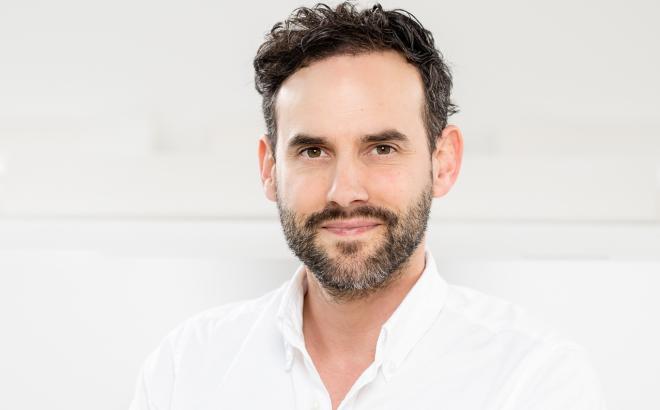Franz Kolland, Gerontologist
What Does Personal Freedom Mean?
Franz Kolland is a sociologist, gerontologist and university professor who heads the KL Division of Gerontology and Health Research as well as a research group on ageing and intergenerational relationships at the University of Vienna. Prior to this, Kolland was the scientific head of the Ludwig Boltzmann Institute for Social Gerontology and Life Course Research.
Interview: Ursula Kastler (Salzburger Nachrichten newspaper (SN), 27 August 2020)
In our region, the pandemic rudely interrupted a lifestyle that had long been seen as an asset and taken for granted. The questions that are thrown up now are uncomfortable.
It seemed as if personal freedom had been seen as a given and a right that could be expanded infinitely over the past decades. Now, the citizens are having to live with restrictions that deeply affect their own private decisions. Broad societal reflection on freedom gained momentum with the French Revolution and the Enlightenment period in the 18th century. Of all the philosophers who commented on this, let us refer only to Denis Diderot, who summarised the essence of the notion of freedom in very drastic terms: “he who obeys his special will alone is the enemy of mankind.” He argued that bourgeois individualism was not possible without interacting with society. The sociologist Franz Kolland discussed this topic with SN.
SN: What happens to personal freedom in times of pandemic?
Franz Kolland: I’m glad you’ve asked this question. In recent years, we sociologists have reflected a lot on equal opportunities and less on freedom, presumably because there was no special need in our society. But now, we need to discuss it again. Even if quite a few of the restrictions bother us, we should not forget that we didn’t have unconditional freedom even before the 13th of March 2020. When we complain about restrictions on our freedom, we should also remember our historical journey from serfdom to the freedom we enjoy today. The freedom we have now, we negotiated over centuries. The benchmark today is higher than it has ever been in history. It is simply that things are happening now that we are not used to, and we have to learn how to deal with them. Freedom is an everlasting process of negotiating, and we have always lived in a socialised setting. Personal freedom has always had its limits. As soon as I enter the social sphere, there is interplay between my freedom and that of others.
As a sociologist, what are you currently noticing in our society?
We are seeing that very many people find the restrictions exhausting and get tired of permanently having to live with them. As a consequence, they look for an outlet. But we are also seeing, not least in our own studies, that there is a high degree of acceptance of and agreement with all measures. We also see a lot of reason and solidarity. The counterbalance between necessary restrictions and personal wishes is a learning process that takes its time. Instead of playing groups within society, such as older and younger people, off against each other, it should be emphasised that, ultimately, the restrictions are to the benefit of all, in medical, social and economic terms. It has become very clear once again that freedom is not possible without a properly functioning legal system. This aspect is now attracting enormous attention, with discussions virtually every week.
Freedom must be seen against the background of social standards. Do we need changes in this respect?
Such changes take place constantly. Let me give you an example: there was a time when it was natural to offer an elderly person your seat in a bus. Today, it is no longer that clear-cut, it could well be that the person does not want to be offered a seat simply because they have grey hair. You now have to personally negotiate each specific situation. If the pandemic lasts much longer, it is likely that we will adapt a few standards.
It will presumably not be as easy as it sounds.
That’s right. We come from a world that was strongly shaped by self-determination and individualism and in which these notions were considered and promoted as positive values. In contrast to this, we see the current restrictions as particularly cumbersome. As a sociologist, I am surprised that people have been so prepared to accept these changes. This might change, the longer the pandemic lasts and because the development progresses in curves. Nobody can predict when there will be an end to this. We need some kind of carrot in front of our nose to bear with it. The carrot could be the concept of solidarity, the bond of our society. I am not in favour of picking out individual groups to protect them. It could be that a society could live better if a preparedness to care for others established itself. But I admit that it is not that easy to live in solidarity in everyday life. It is challenging to observe rules for the sake of the entire society if they do not hold a direct benefit for the individual person.
Are we perhaps on the way to a new bourgeoisie?
That’s a good question. In any case, we are facing the wall with our plurality and diversity. We have to tackle questions we have not faced up to for a long time. What is our social contract? What should it be like now? This is not just about the pandemic. It’s also about other subjects, such as climate change and the economy. In this context, the long-underestimated philosophers should also be invited to take part in the quest for answers. If our daily talks only centre on whether or not we should wear a mask and when we need to test ourselves, we will get bogged down. Much more is at stake now.
Link to the KL research information system KRIS





